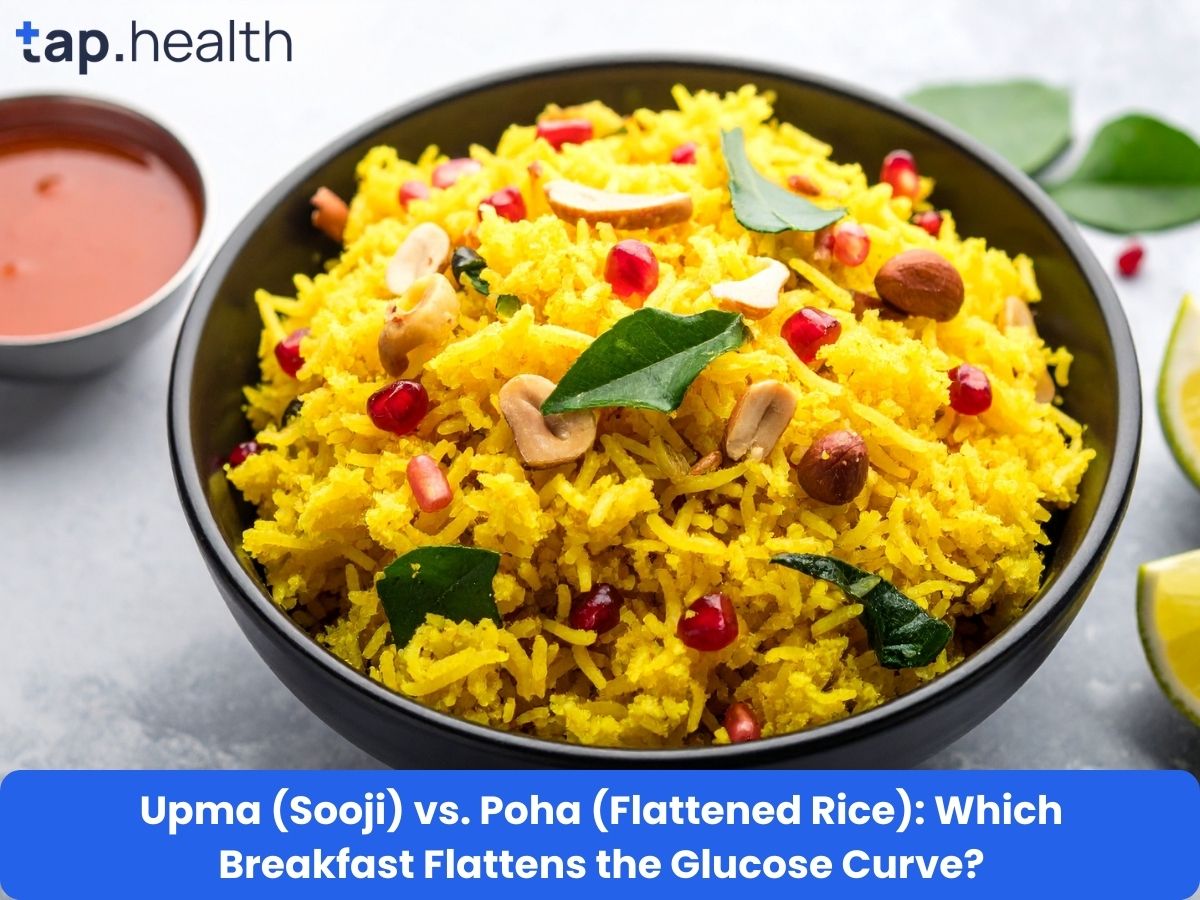Table of Contents
- Fasting and Blood Sugar: A Diabetic’s Guide
- How Does Fasting Affect Blood Glucose Levels?
- Intermittent Fasting for Diabetes: Benefits & Risks
- Mastering Blood Sugar Through Intermittent Fasting
- Your Blood Sugar & Fasting: What You Need To Know
- Frequently Asked Questions
- References
Living with diabetes often means navigating a complex relationship with food and blood sugar levels. One strategy gaining increasing attention is fasting, but understanding how it truly impacts your health is crucial. This blog post delves into the fascinating world of Understanding How Fasting Impacts Blood Sugar Control in Diabetes. We’ll explore different fasting methods, their potential benefits and risks, and what you need to know before incorporating them into your diabetes management plan. Ultimately, we aim to empower you with knowledge to make informed decisions about your health and well-being. Let’s get started!
Fasting and Blood Sugar: A Diabetic’s Guide
Managing blood sugar is crucial for individuals with diabetes, especially in hot and humid climates prevalent across India and tropical countries. Understanding how fasting impacts your blood sugar levels is key to effective diabetes management. A normal fasting blood sugar level is between 70–99 mg/dL. Levels between 100–125 mg/dL suggest prediabetes, while a reading of 126 mg/dL or higher indicates diabetes. Maintaining these levels is essential to prevent long-term complications.
The Impact of Fasting on Blood Sugar
Fasting, particularly intermittent fasting, can influence blood sugar control differently depending on the individual and their diabetes management plan. While some studies suggest potential benefits in improving insulin sensitivity, others caution against its risks, especially for those with poorly controlled diabetes or taking certain medications. It’s crucial to consult your doctor before starting any fasting regimen. Ignoring medical advice and attempting drastic fasting methods can lead to dangerous drops in blood sugar (hypoglycemia), particularly in tropical climates where dehydration is a greater risk. For more information on the safety of intermittent fasting for diabetics, read our article: Is Intermittent Fasting Safe for Diabetics?
Fasting and Diabetes Management in Tropical Climates
In regions like India, where heat and humidity can exacerbate health issues, careful consideration must be given to fasting. Dehydration can significantly impact blood sugar levels, leading to fluctuations and potentially dangerous consequences. Staying properly hydrated and monitoring blood sugar levels regularly during fasting periods is paramount. Consider adjusting your fasting schedule based on your individual needs and the climate. Remember that a healthy, balanced diet and regular exercise remain crucial pillars of diabetes management, regardless of fasting practices.
Recommendations for Diabetics in India and Tropical Countries
Before incorporating any fasting method into your diabetes management plan, schedule a consultation with your doctor or a certified diabetologist. They can assess your specific needs and guide you on a safe and effective approach tailored to your individual health status and the climatic conditions of your region. This personalized approach will help you maintain optimal blood sugar control and improve your overall well-being. To learn more about how meal timing and intermittent fasting can affect glycemic stability, check out our guide: Meal Timing & Intermittent Fasting for Glycemic Stability
How Does Fasting Affect Blood Glucose Levels?
Understanding how fasting impacts blood sugar is crucial, especially in regions like India and other tropical countries where diabetes is prevalent. For individuals with diabetes or prediabetes, managing blood glucose levels is paramount. Fasting, in its various forms, can influence blood sugar differently, depending on factors such as the type of fast, duration, and individual health status.
The Impact of Fasting on Blood Sugar
When you fast, your body switches from using glucose from food for energy to using stored glucose (glycogen) and then stored fat. This process can initially lead to a decrease in blood glucose levels. However, the effect varies greatly. For someone with healthy blood sugar levels (less than 140 mg/dL), fasting might lead to a mild, temporary dip. But for individuals with prediabetes (140–199 mg/dL) or diabetes (200 mg/dL or higher), the impact can be more complex and potentially risky. Improper fasting can lead to dangerously low blood sugar (hypoglycemia), especially if medications are involved. Note that even seemingly innocuous choices, like Drinking Coffee While Fasting, can impact your blood sugar levels.
Fasting and Diabetes Management in Tropical Climates
In hot and humid climates common in India and other tropical regions, dehydration can be a significant factor influencing blood sugar. Dehydration can exacerbate hyperglycemia (high blood sugar). Therefore, proper hydration during and after any fasting period is critical. Always consult with your doctor or a registered dietitian before starting any fasting regimen, especially if you have diabetes or other health conditions. They can help you create a safe and effective plan tailored to your individual needs and the specific challenges of your climate. Remember, responsible fasting can be a valuable tool for some, but it’s crucial to approach it with caution and expert guidance. Seeking professional advice is especially important for people managing their blood sugar in the Indian subcontinent and other tropical areas. For additional ways to support blood sugar regulation, consider exploring how fermented foods can help regulate blood glucose levels.
Intermittent Fasting for Diabetes: Benefits & Risks
Understanding the Impact on Blood Sugar
Intermittent fasting (IF) is gaining popularity as a potential approach to managing blood sugar levels, particularly in regions like India and other tropical countries where diabetes prevalence is high. The practice involves cycling between periods of eating and voluntary fasting, impacting insulin sensitivity and glucose metabolism. While studies are ongoing, the potential benefits include improved insulin sensitivity, reduced weight, and potentially lower HbA1c levels. However, it’s crucial to understand that IF isn’t a one-size-fits-all solution and carries potential risks, especially if not implemented correctly. For instance, improperly managed IF can lead to hypoglycemia (low blood sugar) or exacerbate existing conditions. It’s vital to consult a healthcare professional before starting any IF regimen, especially if you have diabetes or other health concerns.
Potential Benefits and Considerations for Indian & Tropical Climates
In hot and humid climates prevalent in India and other tropical nations, dehydration can be a significant concern during fasting periods. Maintaining adequate hydration is paramount. Furthermore, dietary habits and cultural practices influence the effectiveness of IF. A diet rich in carbohydrates, common in many regions, requires careful consideration when implementing IF. The high daily consumption of sugary beverages, which raises diabetes risk by 26% according to research, should be addressed before starting IF. Transitioning to a more balanced diet, rich in fruits, vegetables, and whole grains, can significantly improve the success and safety of intermittent fasting. While this blog focuses on diabetes, it’s worth noting that IF’s effects extend beyond blood sugar management. For insights into the mental health benefits, consider reading our article on The Benefits of Intermittent Fasting for Mental Health.
Regional Considerations and Practical Advice
Before embarking on any IF plan, consult with a doctor or registered dietitian familiar with diabetes management and regional dietary nuances. They can help you create a personalized plan that considers your specific health needs, lifestyle, and cultural food preferences. Remember, seeking professional guidance is essential to safely and effectively manage blood sugar levels and prevent potential complications. Don’t hesitate to explore different IF methods, such as the 16/8 method or the 5:2 diet, to find what best suits your needs and always prioritize your well-being. It’s also important to consider whether IF is right for you if you have other health conditions. For example, Is Intermittent Fasting Safe for PCOS? explores this question in detail.
Mastering Blood Sugar Through Intermittent Fasting
Understanding Intermittent Fasting for Diabetes Management in India and Tropical Climates
Maintaining healthy blood sugar levels is crucial for individuals with diabetes, particularly in hot and humid climates like those prevalent across India and other tropical regions. Pre-meal blood sugar should ideally be between 80–130 mg/dL, and post-meal levels should remain below 180 mg/dL. Intermittent fasting (IF), a dietary approach involving cycling between periods of eating and voluntary fasting, has shown promise in helping manage blood sugar. However, it’s crucial to consult your doctor before starting any new diet, especially with pre-existing conditions.
Practical Considerations for IF in Tropical Settings
Implementing IF in tropical countries requires careful consideration. The heat and humidity can impact hydration and energy levels, potentially exacerbating the initial challenges of fasting. Staying adequately hydrated is paramount, especially during periods of fasting. Choosing nutrient-dense foods during your eating window is also key to sustaining energy levels throughout the day. Prioritizing foods rich in fiber, like those commonly found in Indian cuisine (e.g., lentils, vegetables), can help regulate blood sugar more effectively.
Tailoring Your Approach for Optimal Results
While IF can be beneficial, it’s not a one-size-fits-all solution. The type and duration of fasting (e.g., 16/8 method, 5:2 diet) should be tailored to individual needs and health conditions. Regular monitoring of blood sugar levels is essential to track progress and make adjustments as needed. Consider consulting a registered dietitian or diabetes educator for personalized guidance, ensuring the chosen IF protocol aligns with your individual health status and lifestyle within the unique context of your region. Remember, consistent and informed management is key to successful blood sugar control. For more tips on building healthy habits, check out How to Build Habits That Help Control Blood Sugar Levels. And to learn more about preventing those pesky blood sugar spikes, read our article on Mindful Eating Strategies to Prevent Blood Sugar Spikes.
Your Blood Sugar & Fasting: What You Need To Know
Maintaining healthy blood sugar levels is crucial, especially in regions like India and other tropical countries where diabetes is prevalent. Understanding how fasting impacts your blood sugar is key to effective diabetes management. For context, remember that a Hemoglobin A1c (HbA1c) level below 5.7% is considered normal; 5.7%–6.4% indicates prediabetes, and 6.5% or higher suggests diabetes. Regular monitoring of your HbA1c levels is essential.
The Impact of Fasting on Blood Sugar
Fasting, whether intermittent or prolonged, can significantly affect blood glucose levels. For individuals with diabetes, consistent blood sugar monitoring during fasting periods is paramount. This is particularly important in tropical climates where dehydration and other factors can influence blood sugar fluctuations. While fasting can improve insulin sensitivity for some, it’s vital to consult a doctor before starting any fasting regimen, especially if you have diabetes or pre-diabetes. Never undertake drastic changes without medical advice.
Practical Tips for Managing Blood Sugar During Fasting
Incorporating dietary changes alongside fasting can significantly improve blood sugar control. Focus on a balanced diet rich in fiber, complex carbohydrates, and lean protein. Prioritize whole grains prevalent in Indian cuisine like roti made from whole wheat, and incorporate plenty of fresh fruits and vegetables. Regular exercise, even short walks, is also beneficial. Understanding Blood Sugar Levels is key to making informed dietary choices.
Seeking Regional Expertise
Remember, managing diabetes effectively requires personalized strategies. Consult with a doctor or a certified diabetes educator in your region for tailored advice. They can help you understand how fasting might impact *your* blood sugar levels specifically, considering your individual health status and the climate you live in. Don’t hesitate to seek professional guidance to ensure safe and effective blood sugar management. Knowing what constitutes a Normal Blood Sugar Level After Eating can also be helpful in managing your overall blood sugar control.
Frequently Asked Questions on Fasting & Blood Sugar Control | Diabetes Management Guide
Q1. What are normal blood sugar levels, and what do higher levels indicate?
Normal fasting blood sugar is between 70-99 mg/dL. Levels of 100-125 mg/dL may suggest prediabetes, while levels of 126 mg/dL or higher indicate diabetes.
Q2. How does intermittent fasting affect blood sugar, and is it suitable for everyone with diabetes?
Intermittent fasting’s impact on blood sugar varies depending on individual factors and diabetes management. While some see benefits like improved insulin sensitivity, it can be risky for those with poorly controlled diabetes or on certain medications, potentially causing dangerous hypoglycemia. It’s crucial to consult a doctor before starting IF.
Q3. Are there extra considerations for people with diabetes living in hot and humid climates?
Yes, in hot, humid climates, dehydration is a significant concern during fasting, increasing the risk of hypoglycemia. Maintaining hydration and closely monitoring blood sugar levels are especially important.
Q4. What is the best approach to managing blood sugar levels with or without intermittent fasting?
Regardless of fasting practices, a healthy diet, regular exercise, and regular blood sugar monitoring are essential. Personalized advice from a doctor or diabetologist is vital for safe and effective management tailored to individual needs and climate.
Q5. I’m considering intermittent fasting. What is the first step I should take?
Before starting any fasting regimen, especially if you have diabetes, it is crucial to consult your doctor. They can assess your individual health status, medications, and diabetes management plan to determine if intermittent fasting is safe and appropriate for you.
References
- A Practical Guide to Integrated Type 2 Diabetes Care: https://www.hse.ie/eng/services/list/2/primarycare/east-coast-diabetes-service/management-of-type-2-diabetes/diabetes-and-pregnancy/icgp-guide-to-integrated-type-2.pdf
- What is Diabetes: https://www.medschool.lsuhsc.edu/genetics/docs/DIABETES.pdf



